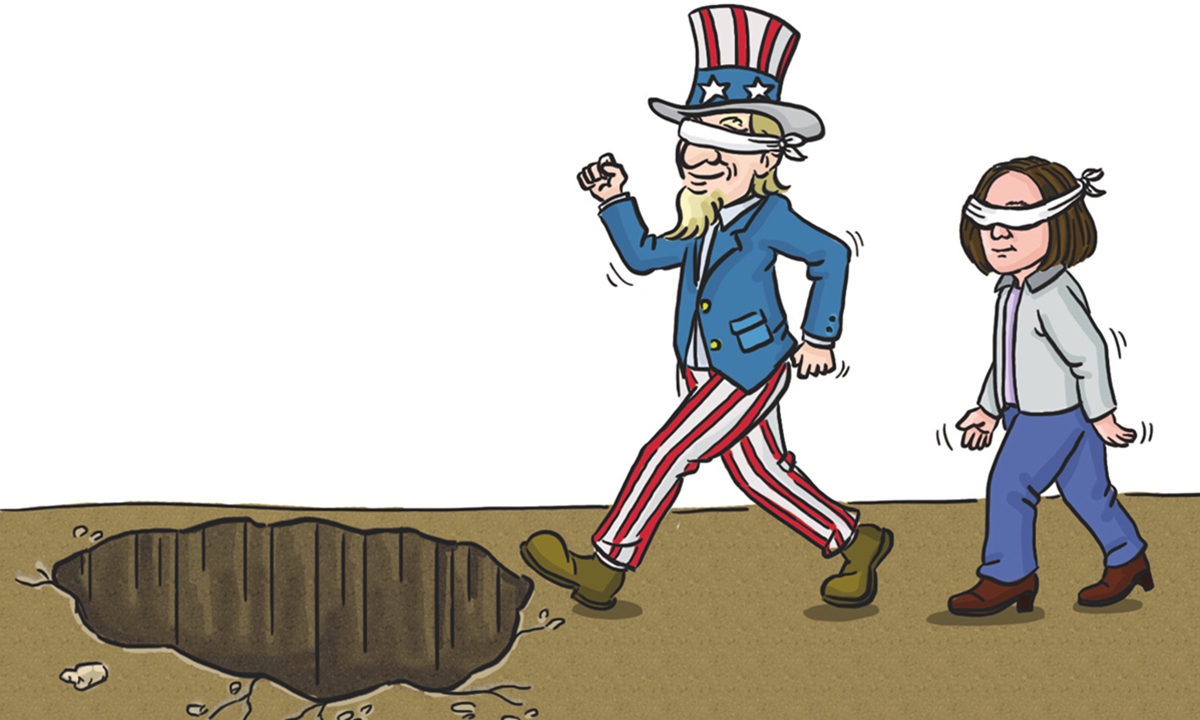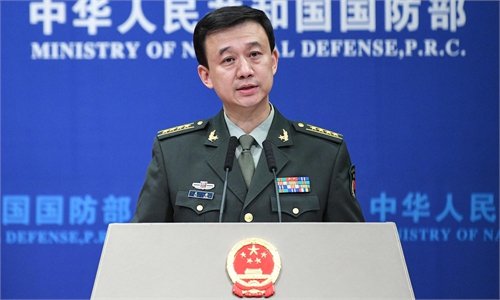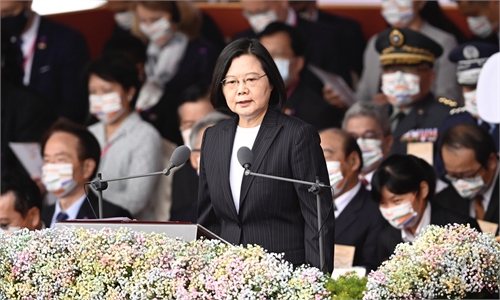Biden picks up Trump’s gauntlet on Taiwan question, but Beijing’s resolve remains unchanged

Illustration: Xia Qing/GT
The Biden administration is preparing to issue guidelines that would make it easier for US diplomats to meet "officials" of the Taiwan island, according to Financial Times on Tuesday.Mike Pompeo, US secretary of state under Trump, rescinded many of the restrictions on contacts between US officials and those from the island in January after Congress passed the Taiwan Assurance Act, which mandated a US review within 180 days.
Given the current negative atmosphere in Washington toward Beijing, especially the bipartisan consensus on China, it is unlikely that the Biden administration will completely veto some of the measures that have promoted the upgrading of relations between the US and the island of Taiwan adopted by the Trump administration.
The US' strategic community believes that it's possible the Chinese mainland will achieve reunification by force in the next few years. Although Biden himself may not be a very aggressive president, his team cares very much about how public opinion, as well as US allies, view his administration. For these above reasons, they are putting forward the so-called guidelines.
The guidelines reflect that the Biden administration is unlikely to return to its previous restrictions on official contacts with Taiwan. It will continue to remove those restrictions step by step.
Biden wants to advance relations between the US and the island, but he doesn't want to antagonize Beijing over the Taiwan question to affect the areas where they can search for cooperation. The most likely model for a future relationship between the US and the island is to maintain stability across the Taiwan Straits, while continuing to develop relations. It is expected that Washington will continue to sell arms to the island and help improve its so-called defense capabilities.
Whether there will be a breakthrough in US' policy toward the island depends on what will be done at each stage, how it will be done, and what actions will be taken that are stipulated in the guidelines.
However, whatever breakthroughs are made will be very limited. What Biden needs is to seek a balance between the island and Chinese mainland, one that will not harm US' own interests.
If the Biden administration publicly stands with the Democratic Progressive Party's authorities or Taiwan separatist forces, the possibility of a China-US armed conflict, or the Chinese mainland using force to reunify Taiwan, will grow sharply. The mainstream US strategic circle is not willing to see such a scenario. Hence, no matter how exaggerated the guidelines are, US policy will not change.
The strategic goal of the current administration and its predecessor to crack down on China and prevent it from threatening US hegemony has been consistent The Biden administration wants to continue exploiting the "Taiwan card," but by different means.
However, the Biden administration will not easily discard the US' long-term "strategic ambiguity" over Taiwan. Abandoning "strategic ambiguity" will push the US into a dilemma, in which it will either pay a heavy price or will gravely impact its international image.
Washington's attempts to expand its official exchanges with Taiwan can be seen as its old tricks, but with increasing provocations. The fact is Taiwan is isolated in the international community, and has only 15 allies. This situation cannot be changed by any US' efforts. After all, the US itself already established diplomatic relations with the Chinese mainland in 1979.
China's national power and global influence has increased remarkably in recent decades. The majority of countries across the world have recognized the one-China principle. This trend cannot be modified.
The Trump administration canceled US ambassador to the United Nations Kelly Craft's trip to Taiwan island at nearly the last minute of its tenure. There are two lessons that the Biden administration can learn from this. First, the US will bear a high risk if it irritates China on the Taiwan question. Second, the Chinese government has the firm resolve and the ability to safeguard its national sovereignty and territorial integrity.
The author is Deputy Director and senior fellow of the Institute of American Studies, Chinese Academy of Social Sciences. opinion@globaltimes.com.cn



